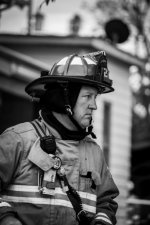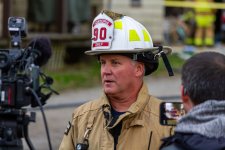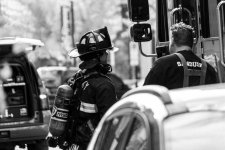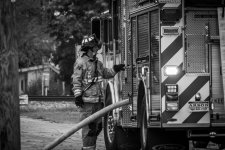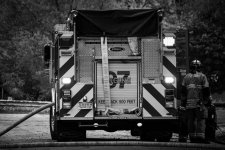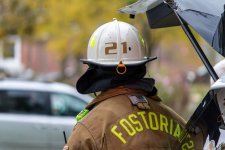- Joined
- May 25, 2019
- Messages
- 148
- Reaction score
- 53
Long time lurker here. Are P25 radios really better at scanning? One thing I'm surprised I haven't seen anyone point out is that a lot of public safety agencies, fire, police and EMS use scanners to monitor other channels, not P25 radios.
Scanners are all band and can be programmed with multiple different systems. It's cheaper and quite frankly I can't tell much of a difference in performance when it comes to scanning. The programming is easier and agencies don't have to do so much d*m paper work to program another agencies talkgroups into a radio. Honestly, I kinda prefer to use my scanner over my mobile in the vehicle. I leave my mobile on our main dispatch so it can focus on that and let my scanner do the work and I've had no problems. I scan numerous system types at work too.
The one unfortunate downfall is it's not possible to program encrypted channels into a scanner, even if you're an authorized agency/user, which forces departments to use more costly radio's to monitor.
Just my two cent's on the whole ordeal. While I think it is cool and rugged to have, I don't see much difference in performance. Was curious what others have to say?
Scanners are all band and can be programmed with multiple different systems. It's cheaper and quite frankly I can't tell much of a difference in performance when it comes to scanning. The programming is easier and agencies don't have to do so much d*m paper work to program another agencies talkgroups into a radio. Honestly, I kinda prefer to use my scanner over my mobile in the vehicle. I leave my mobile on our main dispatch so it can focus on that and let my scanner do the work and I've had no problems. I scan numerous system types at work too.
The one unfortunate downfall is it's not possible to program encrypted channels into a scanner, even if you're an authorized agency/user, which forces departments to use more costly radio's to monitor.
Just my two cent's on the whole ordeal. While I think it is cool and rugged to have, I don't see much difference in performance. Was curious what others have to say?






